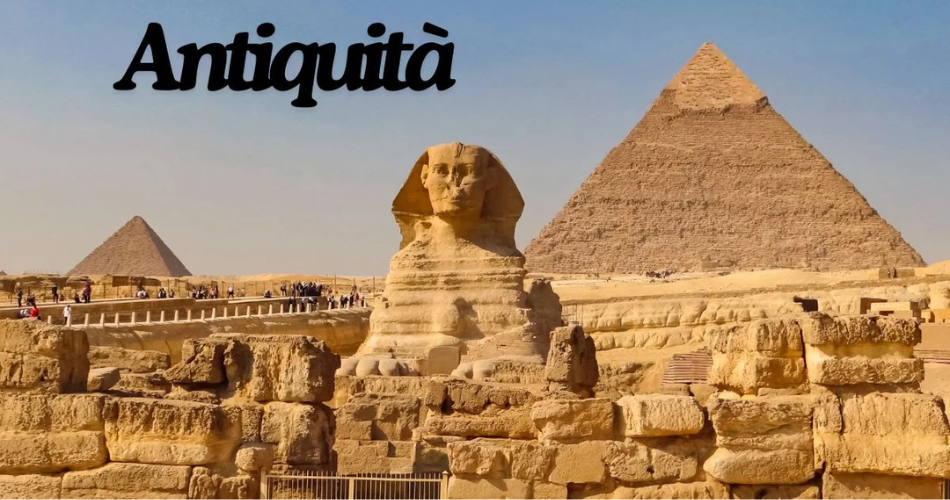Antiquità: The Foundations of Modern Civilization
Introduction
The term antiquità refers to an expansive era preceding the Middle Ages, encompassing the foundations of human civilization and cultural evolution. Spanning from the earliest known records up to the fall of the Roman Empire in the 5th century AD, this period is marked by the rise and decline of powerful empires, transformative advancements in art, science, and philosophy, as well as the establishment of spiritual and intellectual traditions that continue to shape modern thought. Exploring the epoch of antiquità offers a deeper understanding of foundational civilizations, their groundbreaking contributions, and the profound legacies that continue to influence our world today.
Mesopotamia and Egypt: The Origins of Civilization
Often hailed as the “Cradle of Civilization,” Mesopotamia, located between the Tigris and Euphrates rivers, is widely regarded as one of the earliest sites of complex human society. By around 3500 BCE, the Sumerians had built a flourishing culture that introduced major innovations, such as cuneiform—the earliest known system of writing—and the invention of the wheel. The structured urban lifestyle and the formation of legal systems like the Code of Ur-Nammu and the later Code of Hammurabi in Babylon set foundational concepts for law that influence legal frameworks even today.
In parallel, ancient Egypt rose to prominence along the Nile River, renowned for its monumental achievements in architecture, including the iconic pyramids of Giza and the grand temples at Karnak and Luxor. Egyptian advances were groundbreaking across fields like mathematics, medicine, and engineering, evident in their sophisticated methods of mummification and detailed knowledge of human anatomy. Egyptian hieroglyphs, an intricate writing system of symbols, offer invaluable insights into their society’s values, beliefs, and structures, providing a vivid account of life during this formative era.
Ancient Greece: The Dawn of Philosophy and Science
Moving westward, ancient Greece emerges as a celebrated hub of philosophy, science, and the arts. Known as the birthplace of Western intellectual tradition, ancient Greece’s city-states—especially Athens—fostered remarkable philosophical thought. Great thinkers like Socrates, Plato, and Aristotle developed frameworks in logic, ethics, and metaphysics that continue to influence modern education and critical thinking. Socratic inquiry, Plato’s ideal forms, and Aristotle’s methodical logic form the bedrock of philosophical study.
Greek achievements extended into mathematics and science, with figures like Pythagoras, Euclid, and Archimedes laying down principles that remain fundamental to mathematics today. In astronomy, Greek scholars like Aristarchus proposed early models of a heliocentric universe, foreshadowing future scientific discoveries about the cosmos.
Greek culture also championed artistic expression through literature and drama, with works like Homer’s Iliad and Odyssey, the tragedies of Sophocles and Euripides, and historical writings by Herodotus and Thucydides. These works shaped the course of global literature. The Greek emphasis on beauty, symmetry, and balance in the arts established aesthetic values that have endured throughout history and continue to inspire creativity worldwide.
The Rise of the Roman Empire: A Unifying Force across the Mediterranean
As Greek influence waned, Rome emerged as a dominant power, evolving from its origins as a modest city-state in 753 BC to a vast empire stretching across Europe, North Africa, and the Near East. Roman governance laid enduring foundations, starting with the Republic and later evolving into the Empire, creating political frameworks that continue to shape modern political thought and institutions. Early Roman law, particularly through the Twelve Tables and later Justinian’s Corpus Juris Civilis, laid the groundwork for legal systems in numerous countries.
Roman innovation in engineering and architecture was remarkable, leaving behind infrastructure marvels like aqueducts, expansive road networks, and the iconic Colosseum. Their pioneering use of concrete allowed them to construct durable buildings that have stood the test of time. Roman cities featured public amenities like amphitheaters, bathhouses, and temples, showcasing advanced urban planning and architectural expertise that remains influential in architectural design.
Rome was a cultural crossroads, absorbing and transforming influences from the civilizations it encountered, notably Greece. While inspired by Greek predecessors, Roman poets like Virgil infused their work with distinctively Roman values, as seen in The Aeneid. This cultural synthesis underlined Rome’s adaptability and profound influence on the broader Mediterranean world.
Influential Contributions from the Far East: Ancient China and India
Though Mediterranean civilizations are often emphasized in ancient studies, equally groundbreaking developments occurred in ancient China and India. China’s dynasties made lasting contributions to human advancement, beginning with the Shang Dynasty (c. 1600–1046 BC), which developed early writing, bronze craftsmanship, and foundational religious practices that have deeply shaped Chinese culture.
The Zhou Dynasty (1046–256 BC) introduced the concept of the “Mandate of Heaven,” a philosophy that suggested rulers were divinely appointed—a concept that held immense influence. Confucianism and Daoism also emerged during this period, establishing ethical and philosophical traditions that endure to this day. Later, the Qin Dynasty (221–206 BC) unified China, creating uniform standards in writing, currency, and measurement, and began building the Great Wall—a symbol of China’s enduring resilience and ingenuity.
In ancient India, the Indus Valley Civilization (c. 3300–1300 BC) showcased sophisticated urban planning and sanitation systems. During the subsequent Vedic period (c. 1500–500 BC), the roots of Hinduism took shape, creating a cultural and religious structure that has guided Indian society through the ages. The Maurya and Gupta Empires advanced Indian culture and knowledge; under Ashoka the Great, Buddhism flourished, while the Gupta Empire is celebrated as a golden age of achievements in mathematics, astronomy, literature, and art.
Enduring Legacies of the Ancient World
The influence of ancient civilizations on today’s society runs deep, spanning governance, intellectual thought, scientific discovery, and cultural contributions. The principles of democracy introduced in Athens and the early republic system of Rome serve as cornerstones for modern governance frameworks worldwide. Additionally, the philosophical explorations of Greek scholars laid a foundation for Western education and intellectual traditions, while Roman legal principles underpin many judicial systems globally.
Ancient civilizations made significant advancements in science and mathematics that continue to serve as essential building blocks in these fields today. The mathematical theories of Greek scholars, the Indian development of numeral systems including the concept of zero, and the astronomical research conducted by both Chinese and Greek observers have all contributed to modern scientific progress. Similarly, ancient engineering achievements, such as Roman roads and the Great Wall of China, stand as remarkable examples of human ingenuity and remain influential in modern engineering design.
Culturally, the literature and art of ancient civilizations retain their timeless appeal. Epics like The Iliad, Oedipus Rex, and The Aeneid continue to inspire global literature and serve as pillars of storytelling. Architectural wonders from Egypt, Greece, and Rome showcase the sophisticated artistry and craftsmanship of these ancient societies. Modern art, literature, theater, and music still draw from these ancient influences, as contemporary creators reinterpret these classics to develop fresh, expressive works.
Conclusion
The enduring contributions of ancient civilizations underscore the intellectual, artistic, and technological achievements that shaped modern society. These early societies laid the groundwork for our legal frameworks, political systems, scientific understanding, and cultural expressions. Reflecting on these ancient legacies offers a profound appreciation for the achievements of our ancestors and reminds us of the historical depth that continues to influence our lives. Their contributions are not only the foundation of our current civilization but also a continuous source of inspiration and guidance for the future.
FAQs
- What is the meaning of “antiquità”?
The term “antiquità” refers to the era before the Middle Ages, encompassing ancient civilizations and their contributions that shaped the foundations of modern civilization. This period extends from early recorded history up to the fall of the Roman Empire in the 5th century AD.
- Why are Mesopotamia and Egypt considered the “Cradle of Civilization”?
Mesopotamia and Egypt are known as the “Cradle of Civilization” due to their early advancements in societal structure, law, writing systems, and monumental architecture. Mesopotamia introduced the earliest writing system (cuneiform), and Egypt is renowned for its impressive architecture, such as the pyramids, as well as innovations in mathematics, medicine, and engineering.
- What were some major contributions of ancient Greece?
Ancient Greece contributed significantly to philosophy, science, mathematics, art, and literature. Philosophers like Socrates, Plato, and Aristotle laid the groundwork for Western philosophy, while mathematicians like Euclid and Pythagoras made foundational contributions to geometry. Greek literature, drama, and historical writings also had a lasting impact on global culture.
- How did the Roman Empire influence modern society?
The Roman Empire influenced modern society through its legal systems, engineering feats, and political ideas. Roman law, urban planning, and infrastructure such as aqueducts, roads, and the concept of the Republic have shaped modern governance, architecture, and legal frameworks.
- What contributions came from ancient China and India?
Ancient China and India made groundbreaking contributions in philosophy, governance, science, and religion. China introduced Confucianism, Daoism, and significant advancements in bronze work, writing, and engineering. India contributed to mathematics (including the concept of zero), urban planning in the Indus Valley Civilization, and major religious developments with Hinduism and Buddhism.
- Why is ancient Greece called the “birthplace of Western philosophy”?
Ancient Greece is considered the “birthplace of Western philosophy” because it was home to early philosophers like Socrates, Plato, and Aristotle, who explored fundamental questions in ethics, logic, metaphysics, and politics. Their ideas form the core of Western philosophical tradition and continue to influence modern thought.
- What legal systems from antiquità influence today’s judicial systems?
The legal systems from Rome, especially the Twelve Tables and Justinian’s Corpus Juris Civilis, are foundational to many contemporary legal systems. Concepts like property rights, contractual obligations, and personal freedoms have roots in ancient Roman law.
- How did ancient civilizations influence modern science and mathematics?
Ancient civilizations laid crucial foundations in science and mathematics. Greek mathematicians like Euclid and Archimedes set principles for geometry and physics. Indian mathematicians introduced numerals and the concept of zero, while Chinese astronomers made early observations that contributed to our understanding of the cosmos.
Stay informed with the latest news and updates on Weboftimes.com






